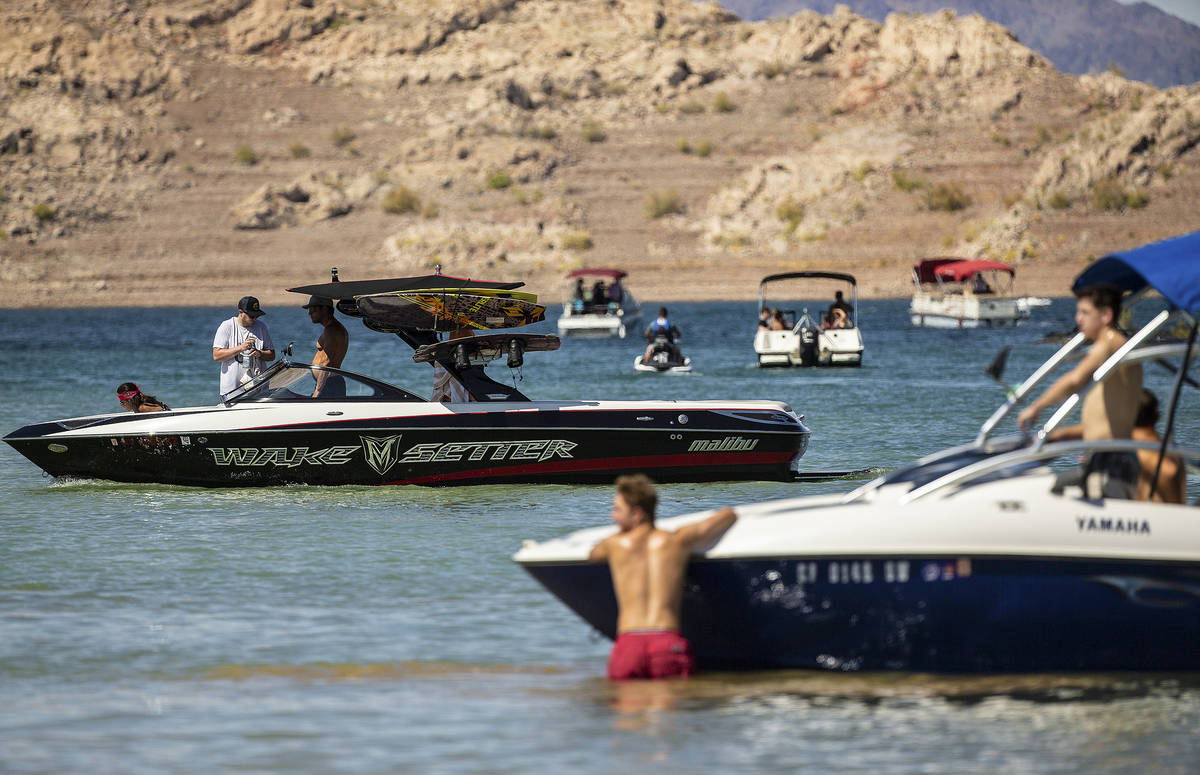
As summer heats up, residents and visitors to Southern Nevada will flock to Lake Mead National Recreation Area to cool off in the valley’s largest man-made body of water.
Those who will board a boat to take in the sights of Lake Mead and Lake Mohave should take particular care, as the Silver State is the most accident-prone state for boaters.
Nevada averages nearly 130 boat crashes resulting in death, injury or property damage per 100,000 registered boat owners each year, placing the state on top of the dubious ranking. The second- and third-most-dangerous states are neighboring Utah and Arizona, which saw 126 and 104 crashes per 100,000 registrations, the study found.
If you find yourself in a boating-related crash at Lakes Mead or Mohave, it must be reported to the National Park Service within 24 hours.
To ensure they don’t become part of the state’s statistics, boaters should follow these safety tips from the National Park Service:
Check the weather: Before heading to the lake, check weather forecasts and keep an eye out for storm warning flags at marinas. If a storm develops while you’re on the water, seek shelter in a protected cove immediately and hunker down until the storm passes. Lightning is also a hazard on open water.
Pay attention to water levels: Water levels in Lakes Mead and Mohave change throughout the year. Always approach the shore with caution and watch for shallows and submerged debris.
Wear a life jacket: Many people who drown never intended to enter the water. Wearing a life jacket could greatly reduce a person’s chance of drowning. All boaters must have required safety equipment on board their boat.
Don’t boat impaired: Operating a boat under the influence of alcohol or drugs is a recipe for disaster. The chance of an accident increases as a boater’s ability to react, mentally and physically, is impaired.
Have a fire extinguisher: All vessels carrying, as fuel, any volatile liquid having a flash point of 110 F, and all vessels with any closed or covered compartments must have a fire extinguisher immediately available. Boats of open construction under 26 feet in length are not required to have an extinguisher, but it is recommended. Personal watercraft also must have a serviceable B-I USCG fire extinguisher on board.
Take a safe boating course: People younger than 18 are required to pass a boating education course approved by the National Association of State Boating Law Administrators to operate a vessel in Nevada. Persons older than 18 must follow the requirements for their state of residency. For Nevada residents, anyone born after Dec. 31, 1982, who operates a vessel more than 15 miles per hour in Nevada must possess a certificate of completion for a boater education course or proficiency exam.
Send questions and comments to roadwarrior@reviewjournal.com. Please include your phone number. Contact Mick Akers at makers@reviewjournal.com or 702-387-2920. Follow @mickakers on Twitter.